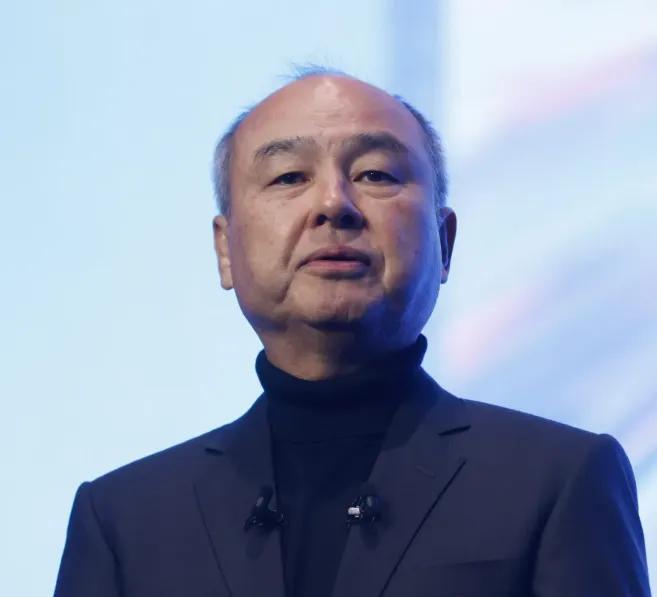Masayoshi Son, the visionary founder and CEO of SoftBank, is preparing for an ambitious leap into the AI chip market with plans to raise an astounding $100 billion. This venture aims to directly challenge Nvidia, the current leader in AI chip development. Reports from Bloomberg indicate that SoftBank will commit $30 billion of its own funds, with the remaining $70 billion to be sourced from Middle Eastern investment firms.
This move signifies SoftBank’s determination to play a central role in the AI revolution, which has seen explosive growth in recent years. The AI chip market is becoming an essential backbone of the tech industry’s future, powering everything from machine learning and deep learning algorithms to advanced generative AI models. By entering this space, Son is signaling his intention to disrupt Nvidia’s long-standing dominance and carve out a new path for SoftBank.
One key component of SoftBank’s strategy is its existing investment in Arm, the UK-based chip design company. SoftBank owns a majority stake in Arm, which it acquired in 2016 for $32 billion. Arm’s innovative chip architectures are widely used in mobile devices, and the company is now aiming to extend its reach into the growing AI sector. According to sources, SoftBank’s new AI chip initiative will complement Arm’s existing portfolio, which could allow the two to form a powerful synergy in the emerging field of AI hardware.
However, SoftBank’s journey with Arm has not been without obstacles. In 2022, SoftBank attempted to sell Arm to Nvidia for $40 billion, but the deal faced significant regulatory hurdles, preventing it from going through. This illustrates the complexities involved in major technology acquisitions, particularly when antitrust concerns come into play. While the Nvidia acquisition fell apart, the deal’s significance lies in highlighting Arm’s potential as a key player in the global chip industry. Additionally, Nvidia’s $147.3 million investment in Arm further underscores the strategic importance of the company, even as both firms remain competitors in certain segments.
Son’s push into the AI chip market is part of a broader trend within the tech industry, where many major players are scrambling to secure their positions in the rapidly expanding artificial intelligence landscape. One notable example is Sam Altman, co-founder and CEO of OpenAI. Altman is currently seeking an eye-watering $5 trillion to $7 trillion in funding to enhance global AI chip production capabilities. This highlights the scale of investment required to compete in the AI chip market and the massive infrastructure needs that lie ahead.
The global AI chip market is booming. In 2023, AI chip sales surpassed $527 billion, and projections suggest this figure will exceed $1 trillion annually by 2030. The surge in demand for AI-powered technologies, including machine learning and deep learning, has spurred the need for more powerful, specialized hardware to handle these sophisticated tasks. As the market expands, companies like SoftBank, Nvidia, and others are positioning themselves for what could become the next tech arms race.
For SoftBank, this venture represents more than just a business opportunity. It’s also a strategic move to secure its place as a leading innovator in the AI space. Son has long been known for making bold, high-risk investments, and his track record shows he is willing to push boundaries. The AI chip market is a natural next step for SoftBank, given its investment in Arm and its deep expertise in tech investments.
On the other hand, Nvidia has already established itself as the dominant player in the AI chip space, and its position is unlikely to be easily toppled. The company’s GPUs (Graphics Processing Units) have become the gold standard for machine learning applications, and Nvidia has maintained a competitive edge by continually evolving its product offerings. In fact, analysts are eagerly awaiting Nvidia’s earnings report on February 21, with expectations of a significant revenue and profit surge driven by the increasing demand for AI technologies. This strong performance will be a tough challenge for SoftBank as it attempts to carve out a niche in the same market.
Despite the challenges, SoftBank’s aggressive stance could pay off. The company’s deep financial resources, combined with its existing stake in Arm, provide it with a solid foundation to build upon. If SoftBank’s AI chip venture gains traction, it could lead to significant advancements in the AI ecosystem, potentially offering new solutions that cater to the growing needs of AI-driven businesses.
As the AI chip race intensifies, the stakes have never been higher. Investors, tech analysts, and industry leaders are keeping a close eye on developments, as the future of AI innovation hinges on who can lead the charge in creating the next generation of AI hardware. SoftBank’s foray into the AI chip sector will be a key moment in this ongoing battle, and it remains to be seen whether it will emerge as a genuine contender or face the same obstacles that have plagued other would-be challengers.
Looking ahead, the trajectory of AI chip development will likely continue to unfold rapidly. Whether through continued investment in established players like Nvidia or by breaking new ground with initiatives like SoftBank’s, the future of AI will undoubtedly be shaped by the companies that can deliver cutting-edge hardware to power the next wave of innovation. As companies vie for dominance, the world of AI is set for even more exciting advancements in the years to come.





